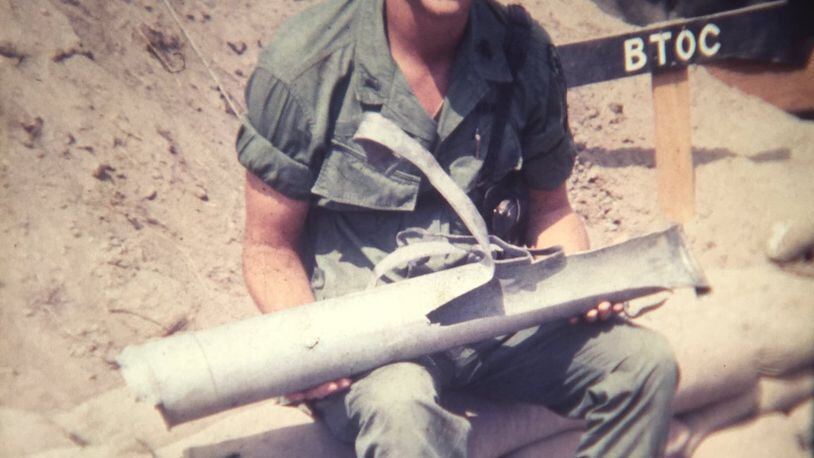Veteran suicides caused by mental illness were in the news this week when an Afghanistan veteran was killed by a Butler County sheriff’s deputy. Police were initially called to a scene in St. Clair Twp. on reports of a man, later identified as Jacob Faulkner, shooting at a moving train.
Faulkner’s family told the Journal-News that Jacob showed symptoms of PTSD.
MORE: 5 things to know about Jake Faulkner, man fatally shot by Butler County deputy
As deputies surrounded a house in the 4100 block of Trenton Road, Faulkner, a New Miami High School graduate, walked around the garage and raised his rifle at deputy Taylor Henson, who fired several shots, according to the Butler County Sheriff’s Office.
Faulkner, 32, had served in the Marines in Afghanistan, according to his family.
Faulkner, who had been back in the U.S. for about six years, died at the scene, and his family believes he committed “suicide by cop.” Faulkner was encouraged to talk to a counselor, his family said.
During her call to 911, his mother, Donna Faulkner, said her son may suffer from PTSD.
“He has been going through a really rough time,” she said in the call. “He doesn’t like the sound the train makes.”
His case, sadly, isn’t unique.
MORE: Last fatal shooting involving Butler County Sheriff’s Office was in 2004
On average, 20 veterans a day commit suicide, according to the most recent report that analyzed 55 million veterans’ records from 1979 to 2014 and was published by the Veterans Administration in 2016.
In 2012, an estimated 6,500 former military personnel died by suicide. More veterans succumbed to suicide than were killed in Iraq: 177 active-duty soldiers died by suicide compared to 176 soldiers killed in combat, the report said.
Those staggering statistics don’t surprise Dan Sack, of Middletown, who served with the 25th Infantry Division in Vietnam from July 1967-1968.
When Sack, now 72 , returned home after Vietnam he felt “heavy anxiety” and couldn’t be around people. He was “terrified” of his family, and as Christmas approached, Sack realized he couldn’t spent time with his relatives.
“That’s not right,” he said.
MORE: Neighbor says Jacob Faulkner suffered from PTSD
So Sack sought professional help and his mental issues eventually subsided, he said.
During Vietnam, Sack said a Marine in his squad committed suicide by shooting himself in the head. The Marine was “a tunnel rat” and his job was to crawl through tunnels on his stomach, armed with a pistol and a flashlight, and shoot any enemy in his sight, Sack said.
That duty was an “extremely terrifying experience,” said Sack, who added that’s probably what led the Marine to suicide.
Sack understands why veterans faced with mental illness are reluctant to seek medical assistance because some consider that “a weakness,” he said. Soldiers are instructed: Don’t be weak.
Caroline Bier, executive director of the Butler County Veterans Service Commission, said the goal of the agency is to “connect” veterans with resources at the VA. If more veterans receive treatment, that may reduce the number of suicides, she said.
“We got to give them the support they need,” she said. “We are a path to get them connected to those resources.”
Still, despite the efforts of the commission, some veterans refuse to seek assistance. That’s part of their military training, she said.
“It’s pride,” she gave as one reason. “They were in life and death situations. They were strong. They were leaders and told not to be a failure. Getting help in the military is not encouraged.”
She called it “a big hump” for some veterans to get help with mental illness, “something people can’t see.”
Bier was asked about her initial reaction when she heard the details of Faulkner’s death. There was a pause on the phone.
“It’s really a weight on my mind,” she said. “Tragic. He was in a real bad place and he couldn’t see there was help.”
About the Author
